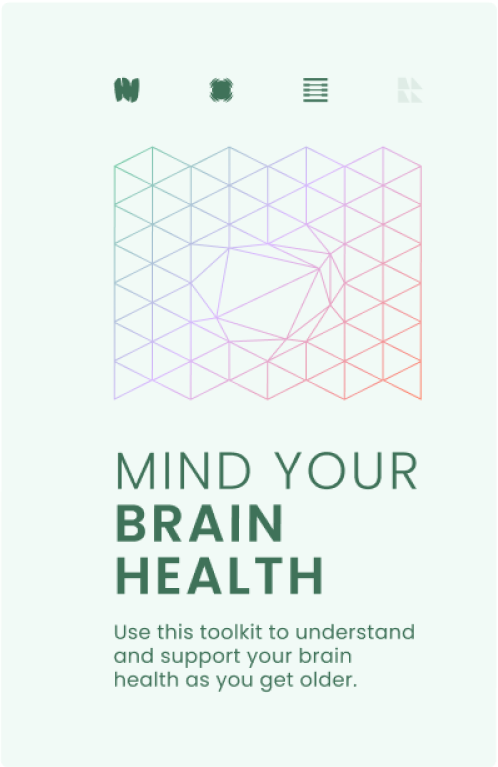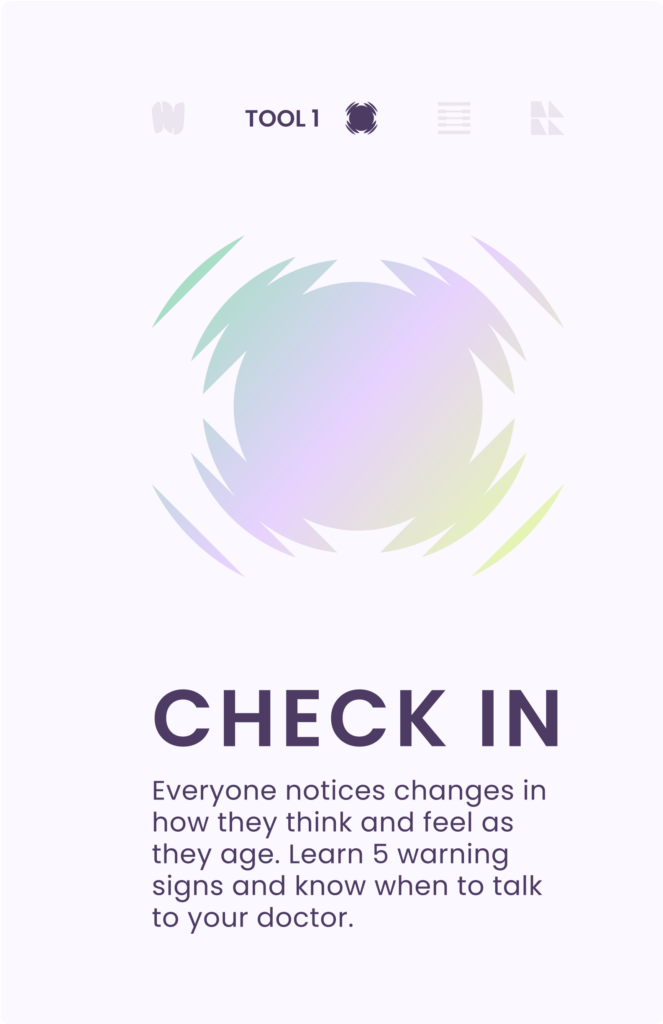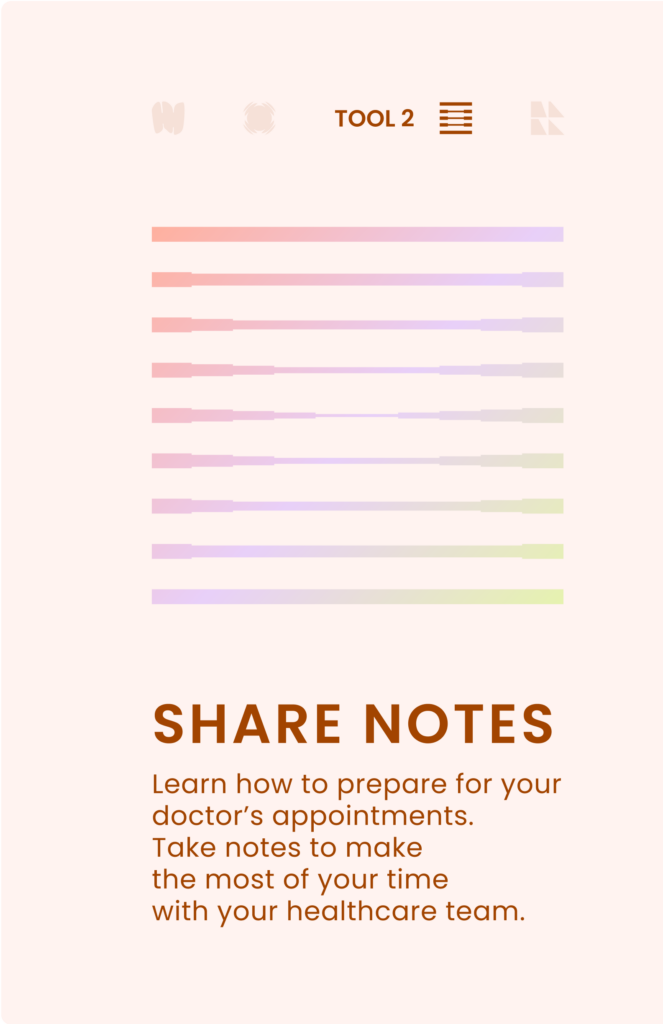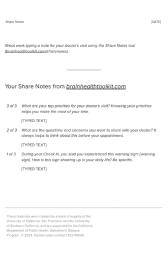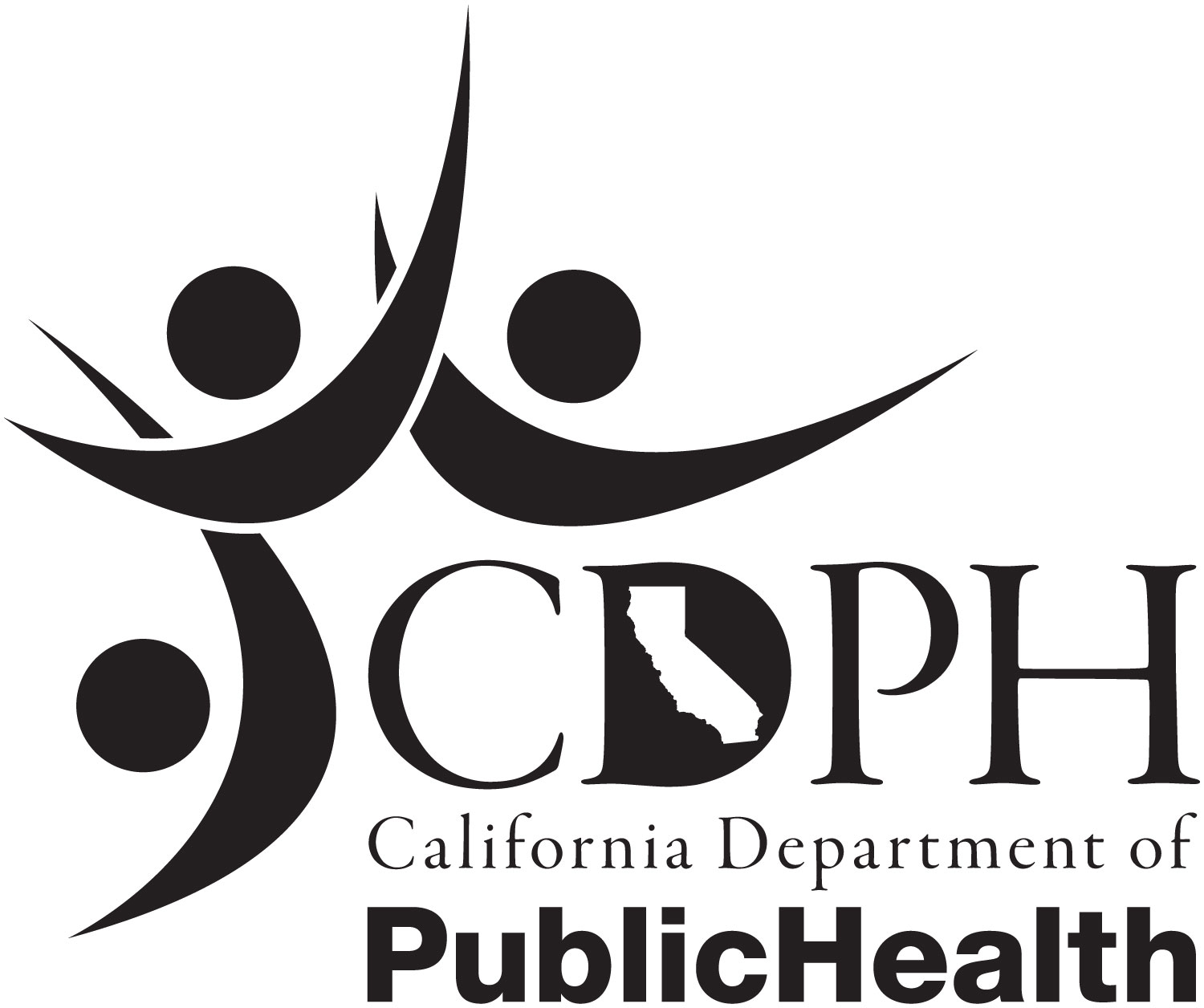
Your brain is amazing. It manages movement, memories, speech, and more.
Inside this kit are three tools to support your brain health:
1 — Check In
Learn 5 changes related to memory and thinking that are signs to talk to your doctor. Identify whether you have any of these warning signs.
2 — Share Notes
Prepare to make the most of your time with your doctor. Learn tips like what questions to ask, and use this tool to take your own notes.
3 — Start Small
Discover fun and easy ways to support your brain health. While there is no certain way to prevent dementia, this tool offers tips to reduce risk.
Prefer paper?
This is a digital toolkit. Tap on the Menu icon to download a printable version.

Experts at the University of California, San Francisco (USCF) and the University of Southern California (USC) made the Toolkit. Dr. Deborah Barnes, Ph.D., M.P.H. of UCSF is directing the development and evaluation of the Toolkit. Her collaborators include Drs. Elisabeth Askin, M.D., Leah Karliner, M.D., Sunita Mutha, M.D, Francesca Nicosia, Ph.D., Alissa Bernstein Sideman, Ph.D. of UCSF and Dr. Soo Borson, M.D. of USC. The design of the Toolkit was supported by a team of professional product designers and user experience researchers, including Dr. Talya Brettler, M.D., M.P.H., Dr. Lucy King, Ph.D., and Amie Zukowski, M.F.A.
The Brain Health Toolkit is supported by the California Department of Public Health, Alzheimer’s Disease Program. © 2024, funded under contract #23-10608.
Contact the Brain Health Toolkit at brainhealthtoolkit@ucsf.edu.
Many people worry about changes in their memory and thinking as they age. This Toolkit helps people understand what changes are normal and what changes mean they should talk to a doctor. It also helps people take actions that support their brain health as they age.
Brain health refers to how well your brain works. This includes:
- How you think, learn, and remember (also called “cognitive functioning”)
- How you control your physical movement, balance, and activity
- How you manage your emotions
Dementia comes from diseases that harm brain health. When a person has dementia, their brain is not as healthy as it once was.
About 22% of adults in the U.S. over 65 have mild cognitive impairment (or MCI), and 10% have dementia. Dementia means having problems with memory and thinking that affect daily life. A person with dementia may need help with daily activities like paying bills, taking medicines, and cooking meals. People with MCI have problems with memory and thinking, but the problems don’t affect daily life. Some people with MCI develop dementia. Alzheimer’s disease is the most common cause of dementia in later life.
There is no sure way to prevent dementia. But leading a healthy lifestyle may reduce your risk. The Start Small tool in the Brain Health Toolkit gives tips on:
- Moving your body
- Prioritizing sleep
- Connecting with others
- Learning new things
It’s also important to:
- Quit smoking
- Limit alcohol
- Manage health problems like diabetes, hypertension, depression or anxiety
It’s important to find out why someone is having changes in brain health as soon as possible. This can help them get care, support, or treatments. If you notice changes in someone you know, talk to them or their friends or family members about it. The Alzheimer’s Association has this resource with tips on how to have this conversation.
There are many reasons people experience problems with memory or thinking. Dementia is one reason. To check for mild cognitive impairment or dementia, a doctor may:
- Ask questions to understand what is happening
- Do “cognitive” tests of memory, thinking, language, and problem-solving/planning
- Do medical tests to understand what is causing the problems
Some people may be referred to a specialist for cognitive disorders. The Alzheimer’s Association has this resource on what to expect at your doctor’s visit.
Getting a diagnosis can be emotional, but also a relief. It helps you understand changes people are already noticing and get the right help. It’s normal to need some time to adjust.
If you are diagnosed with mild cognitive impairment (MCI) or dementia, ask questions, learn what you can do, and talk to your loved ones and doctors about what you are experiencing. It’s important to stay involved in life and to keep taking care of yourself to stay as healthy as possible. Everyone with MCI or dementia should have a “care plan,” which might include:
- Adjusting medications and managing other health conditions
- Changing daily routines and improving your support system
- Preparing information for how other people can help you
Discuss treatment options with a trusted doctor, who should follow your condition over time. There is no standard treatment for dementia, but your doctor will help you decide what’s best. Medical treatments can help with some symptoms. If you have early Alzheimer’s, medications may slow the disease but could have side effects. It’s important to know your options.
Here are some places to get information and support:
- Alzheimers.gov
- Alzheimer’s Association
- Alzheimer’s Disease and Healthy Aging from the Centers for Disease Control
- Alzheimer’s Los Angeles
- Family Caregiver Alliance
- National Institute on Aging
- Take on Alzheimer’s from the California Department of Public Health
- UCSF Memory and Aging Center

